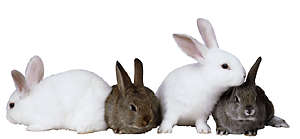
 |
|
 You are here: Picking a Pet > Picking Exotics Got limited living quarters? You may find that fish and reptiles such as iguanas fit perfectly into your lifestyle. Before deciding on a reptile or fish, learn as much as possible about them and their needs. Aquarium Maintaining a marine or freshwater aquarium can be challenging and exciting. The habitat and fish population can be varied over time. As with birds, start small and gain experience first. Caged Pets Don't have space or time for a traditional pet? Try rabbits, domestic mice and rats, gerbils, guinea pigs, and hamsters. Many of these animals have distinct personalities and respond to their owner's voice. A proper cage and nutritious food are a must. Learn to identify the signs of illness in your pet and when the pet needs veterinary care. Exotic and Wild Pets Exotic animals and wildlife like skunks, chimpanzees, poisonous snakes, raccoons, and others do not make good pets. They can be dangerous, and it's illegal to buy or keep them in most states. As the exotic animal matures, it can become aggressive and probably will be unhappy in captivity. Owners who find that they can no longer keep an exotic pet usually encounter great difficulty in placing their animals in a new home. Ferrets Ferrets are kept as pets and for research purposes in many places. Where ferret ownership is legal, experts recommend responsible ferret ownership. Owners need to have knowledge pertaining to ferret husbandry (care, nutrition, housing, and species' habits). Ferrets also need proper veterinary care and preventive medicine. When needed, medical or surgical care should include spaying, castration, and descenting. Ferrets should be vaccinated against rabies, canine distemper and other diseases. |
|
|